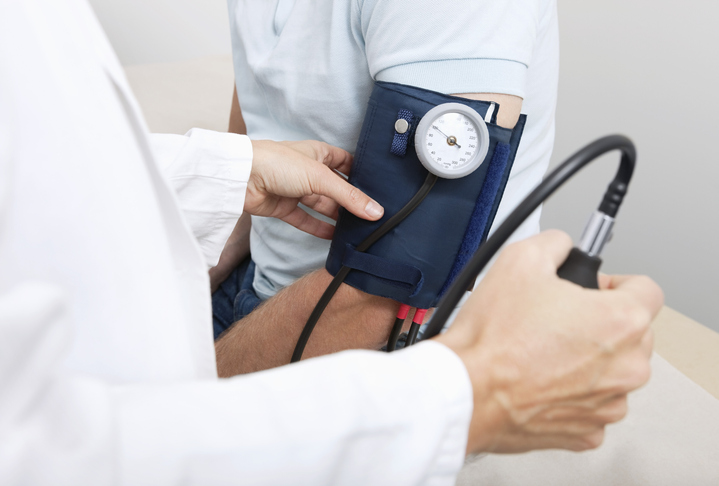Do You Have “White Coat Hypertension?” Here’s How You Can Be Proactive

By Joy Stephenson-Laws, J.D., Founder
I think we can all agree that although very necessary, going to the doctor is not exactly a fun experience. For some, it can be outright anxiety-inducing. It may even cause a rise in blood pressure.
A team of Italian researchers recently conducted a study, published by the American Heart Association, which found that certain lab results may differ depending on whether a doctor is present or not.

To some, the doctor in the white coat can seem intimidating and scary. I believe it’s because a patient may fear that the doctor will be delivering the worst news possible. We’ve all seen how dramatically doctor and patient scenes can play out in movies and television shows.
“‘White coat hypertension’ — the phenomenon when blood pressure rises in some people who are measured by a medical professional — has been known about for decades. It occurs in about a third of people with high blood pressure,” according to one source that discusses the study.
This is important to be aware of, especially if you are someone who is already prehypertensive or hypertensive. When it comes to our blood pressure, we want the most accurate reading possible. Hypertension (high blood pressure) may contribute to the development of heart disease (the leading killer of both American men and women). It is also possible for someone’s blood pressure to be too low. Basically, you want to know where you stand when it comes to your blood pressure so that you can determine if you are at risk and how to best manage it at home.
The Italian research team assessed study participant’s blood pressure, heart rate and nerve traffic in skin and muscles both with and without a doctor present, according to the source mentioned earlier.
The study involved 18 people (14 of which were men) that had mild to moderately high blood pressure that was not in the process of being treated.
“In the doctor's presence, both blood pressure and heart rate rose, and nerve traffic patterns to the skin and skeletal muscle suggested a classic fight or flight reaction,” according to the report provided by the American Heart Association.
“By contrast, when readings were taken without a doctor present, cardiovascular and neural responses were ‘strikingly different,’ the researchers wrote. Indications of the fight or flight response were ‘entirely absent.’”
The study was small, and much more research is needed. However, it brings attention to the fact that we must be aware of how intertwined our bodies’ different systems are and how stress and anxiety can not just mentally affect us but can also physically affect us.
Interestingly, one of the researchers said that earlier work has shown that a patient’s blood pressure tends to spike less at the doctor’s office when taken by a nurse.
At-Home Blood Pressure Monitoring Is Necessary.
The key takeaway from all of this is that we cannot solely depend on a single blood pressure reading taken at the doctor’s office. At-home monitoring is necessary.
Try Not To Be Afraid of The White Coat.
Remember, doctors are there to help us. Before getting a blood pressure reading at your next doctor’s appointment, take a few deep breaths. Let your doctor know you are nervous. You may find that telling him or her that relieves a lot of pressure on you (pun intended!).
Be Proactive About Fighting Hypertension.
One of the reasons why millions of Americans currently have high blood pressure is a diet rich in unhealthy fats, sugar and processed foods. The good news is diet is something you can improve. Along with eating junk foods and sweets in moderation, make sure you are getting an adequate intake of these 7 nutrients that may help fight hypertension. And as always, take a comprehensive nutrient test to ensure you have the right balance of nutrients, like magnesium and potassium. These are examples of nutrients which directly affect your ability to maintain a healthy blood pressure.
Enjoy your healthy life!
Disclaimer: This article is not intended to provide medical advice. Please consult with your doctor or another competent healthcare practitioner to get specific medical advice for your situation.
The pH professional health care team includes recognized experts from a variety of health care and related disciplines, including physicians, attorneys, nutritionists, nurses and certified fitness instructors. This team also includes the members of the pH Medical Advisory Board, which constantly monitors all pH programs, products and services. To learn more about the pH Medical Advisory Board, click here.







